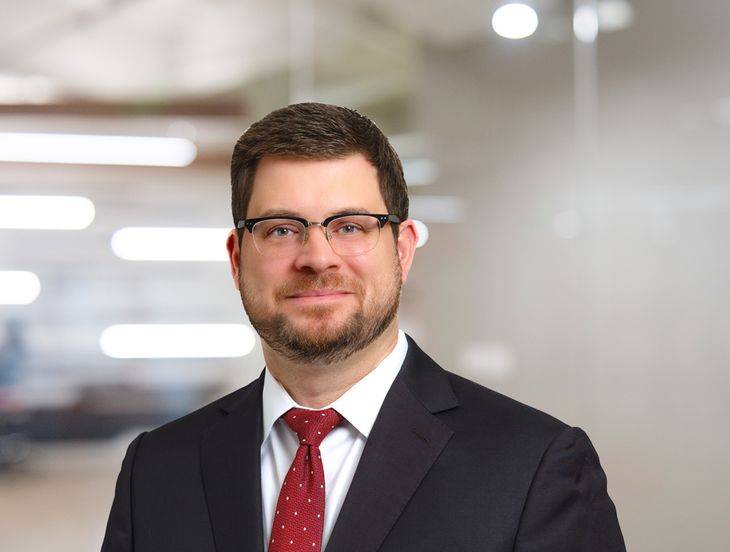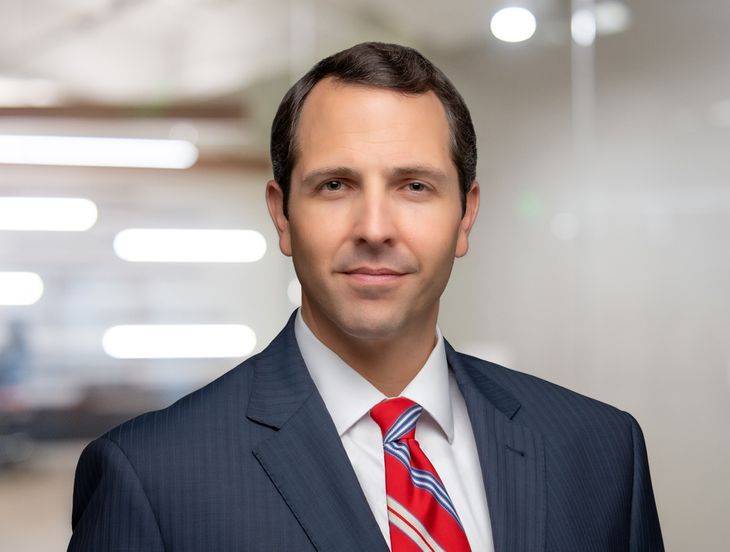Labor Board Grants Employers Greater Rights To Limit Union Activity On Premises
Insights
6.17.19
The National Labor Relations Board issued a decision on Friday reversing 37 years of precedent and thereby granting employers greater rights to limit union activity on their premises. Under the “public space” exception, employers had to allow nonemployee union representatives access to the public areas of their property, including restaurant dining areas and cafeterias, to engage in promotional or organizational activity. But in the June 14 UPMC decision, the Board abolished that exception and held that employers no longer have to allow nonemployee union representatives access to public areas, unless the union has no other reasonable means of communicating with employees or the employer discriminates against the union by permitting similar groups access.
Two Union Organizers Solicit In Hospital Cafeteria
In UPMC, two nonemployee union organizers entered a University of Pittsburgh Medical Center (UPMC) hospital’s public cafeteria and met with a group of at least six employees to discuss organizing activities. The organizers displayed flyers and pins on the tables where they met with employees. At least one manager and one employee complained to security about the union organizers soliciting in the cafeteria.
A security officer responded to the complaints and asked the organizers for identification and inquired why they were there. One of the organizers told the officer they were having lunch with some employees and talking about the union. The officer instructed the organizers to leave because the cafeteria was for patients, their families and visitors, and employees. The organizer explained to the officer that she had earlier tried to talk about the union to a woman sitting in the cafeteria, but the woman stated she was not an employee and was just waiting to have lunch with her friend, who was an employee. The organizer asked the officer if that woman would have to leave too, and the officer replied, “Maybe, but I’m dealing with this right now.”
The union organizers ultimately refused to leave, which prompted the officer to call the local police. The local police arrived shortly thereafter and escorted the organizers from the cafeteria.
The Hospital Consistently Ejects Nonemployee Solicitors From The Cafeteria
UPMC did not post any signs inside or outside the hospital cafeteria restricting access to anyone or prohibiting solicitation, not did it actively monitor access. However, UPMC had a history of responding to reports of solicitation by nonemployees. On at least two prior occasions, UPMC ejected individuals from the cafeteria after receiving reports that they were soliciting for money. And approximately one month after the incident involving the union organizers, UPMC escorted away two individuals from a spiritual advisory group who were distributing literature in front of the cafeteria.
“Public Space” Exception
The United States Supreme Court in 1956’s NLRB v. Babcock & Wilcox Co. established the standard which governs nonemployee access when an employer’s property rights conflict with the right of employees to engage in self-organization. In that case, the Supreme Court held that an employer can validly protect its property against nonemployee union solicitation unless the union has no other reasonable means of communicating its message to employees other than through access to the employer’s facility (the “inaccessibility” exception), or the employer discriminates by treating activities of a similar character differently because of their union or other status protected by the National Labor Relations Act (the “discrimination” exception).
In the 1982 case of Ameron Automotive Centers, the Board created a third exception to Babcock—the “public space” exception—which provided that nonemployee union organizers could not be denied access to cafeterias and restaurants open to the public if the organizers used the facility in a manner consistent with its intended use and were not disruptive. Until UPMC, the Board consistently applied this rule and found that employers violated the NLRA when they restricted public-cafeteria access for nonemployee union organizers who engaged in solicitation and other promotional activities but were not disruptive, even though the Babcock inaccessibility and discrimination exceptions did not apply.
Elimination Of Public Space Exception
Returning to the UPMC case, the union filed an unfair labor practice charge claiming that UPMC’s exclusion of its organizers from the public cafeteria was unlawful based on the “public space” exception. An administrative law judge agreed, and UPMC appealed to the Board. In a 2-1 decision—with the Board’s sole Democratic member dissenting—the Board rejected the “public space” exception, thereby overruling Ameron Automotive, and holding that UPMC’s conduct in barring the union organizers from the public cafeteria was lawful.
In explicitly overturning the “public space” exception, the Board majority first noted that its prior approach had been soundly rejected by multiple federal appellate courts, including the circuit courts from the 4th, 6th, and 8th Circuits. The Board agreed with the judicial criticism of the “public space” exception, concluding it contravened Babcock’s principles. Consistent with Babcock, inaccessibility and discrimination are now the only exceptions to the general rule that an employer does not have to permit nonemployee union representatives access to public areas of its property for promotional or organizational activity.
In the absence of the “public space” exception, the Board found UPMC’s conduct in barring the union organizers from its hospital cafeteria lawful under Babcock because the union had other reasonable means of communicating with the employees, and there was no discrimination, even though the nonemployee who was waiting for her employee friend to eat lunch was not barred. According to the Board, the proper comparison under Babcock’s discrimination exception was not the nonemployee waiting to eat lunch with an employee, but other nonemployees who engaged in promotional activity in the cafeteria. And when informed of those nonemployees’ actions, UPMC removed them just as it removed the nonemployee union organizers.
What This Means For Employers
The UPMC decision is a significant victory for restaurant, hospital, and other employers who maintain public dining areas. You may now lawfully maintain and enforce a valid no-solicitation policy to exclude nonemployee union organizers so long as the organizers have other reasonable means of communicating with employees (which, in most all cases, they do), and they do not discriminate by treating groups differently because of their union or other NLRA-protected status (e.g., permitting solicitation by one union but not another). You are no longer required to permit nonemployee union representatives access to public areas of your property merely because it is a “public space” and the representatives are not being disruptive.
It remains to be seen what impact UPMC will have on union organizing in the hospitality and healthcare industries. For those employers who have historically “tolerated” organizing in public areas for fear of violating the law, this new development offers an additional weapon against unwanted activity. But until organizers are directly confronted and asked to leave public property consistent with the new law, it is unlikely they will voluntarily stop their longstanding organizing practices.
We will continue to monitor any impact and provide additional information as it becomes available, so make sure you are subscribed to Fisher Phillips’ alert system to gather the most up-to-date information. If you need assistance dealing with union activity, unfair labor practice charges, or collective bargaining, please contact your Fisher Phillips attorney, any member of the firm’s Labor Relations Practice Group, or any member of our Hospitality industry or Healthcare industry Practice Groups.
This Legal Alert provides an overview of a specific federal labor board decision. It is not intended to be, and should not be construed as, legal advice for any particular fact situation.
Related People
-
- Phillips L. McWilliams
- Partner

